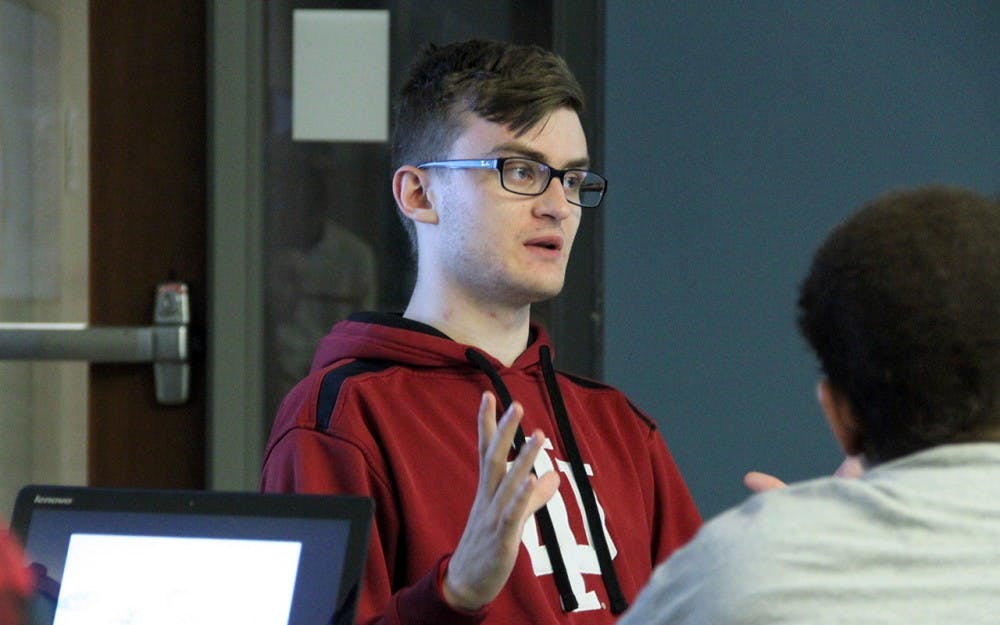The IU Student Association Congress voted to support consolidation of language tutoring resources for international students. The language tutoring resources are currently available through several different sources.
The resolution asks for the creation of a language and counseling center for international students who may not be completely fluent in English and who need additional language help throughout the year.
“We would like to call on IUSA to talk to departments about consolidating resources and making them more available to international students,” said George Pearcy, IUSA Congress parliamentarian and one of the co-sponsors of the bill.
The resolution cited a need for consistently staffed programs because current resources, such as the Asian Culture Center, are either worked by volunteers or are an informal programs, such as Conversation Partner Programs through the Office of International Services.
The resolution also addressed international students whose struggles with a new language may worsen mental health issues and whose options for counseling are currently limited by language barriers. The potential language and counseling center would give students access to peers who could empathize.
The center would work with such organizations as the Asian Culture Center, Writing Tutorial Services, the IU Intensive English Program and any internationally focused living learning centers. Sponsors of the bill said some organizations had already been spoken to prior to the resolution’s vote about consolidating resources into a central body, and that the organizations had tentatively agreed.
Representatives then broke into committees to discuss upcoming legislation. The Election Commission presented its election code changes to the Oversight and Reform Committee for approval pending a vote.
One major change proposed for the code was to require anyone running for president would be required to have one or two years experience in IUSA. Several other schools in the Big Ten Conference currently require students running for president to have previous experience in student government.
Some were opposed to this change to the code because they said it would advantage an incumbent ticket and would dissuade younger students from joining IUSA. They also expressed concern about students who had joined IUSA as freshmen, taken a gap year or two, and then returned to run for an executive position. They proposed mandatory training sessions for the winning ticket by the incumbent ticket to ensure a minimum level of competence.
Others said a prerequisite for running would discourage those without experience and would ensure the new president would be equipped to handle executive office.
Eric Langowski, chair of the Election Commission, said he was wary about the idea and was concerned it might amplify establishment politics.
“My initial response is every single student at IU is a member of IUSA,” Langowski said. “I feel that adding a criteria that you have experience in IUSA creates levels of membership. I’m not opposed to the idea if it prevents joke candidates from winning — I could see someone running off ‘Refund the student fee’ — but I don’t think it’s the election commission’s place to impose such restrictions.”






